2021 International Invention Innovation Competition in Canada (iCAN)
Miss Nicole Yanxi Guan, a student of the Bachelor of Social Sciences (Greater China Studies), has won the top prize at the 2021 International Public Policy Case Competition on Sustainable Development. Organized by Tsinghua University’s School of Public Policy and Management, it is one of the prominent international academic competitions in the field of public policy.
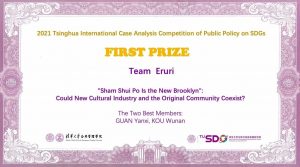
The competition this year was highly competitive, with 147 students coming from reputable universities across China and the world, including Peking University, Tsinghua University, Fudan University, Zhejiang University, The London School of Economics and Political Science, and the University of Michigan.
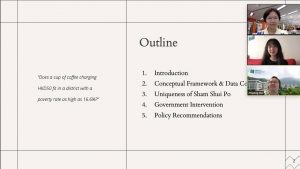
Miss Guan formed a team with a student from New York University, and conducted a case study entitled “Sham Shui Po is the New Brooklyn: Could New Cultural Industry and the Original Community Coexist?” Having survived three rounds of intense competition that took place from June to August, Miss Guan’s team was highly praised by the jury and won a cash prize worth US$3,000. The team was mentored by Dr Fox Zhiyong Hu, Associate Professor of the Department of Asian and Policy Studies who provided excellent guidance and support.
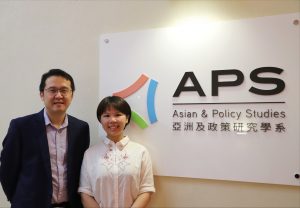
The manuscript of Mr Md Hossain Farid, PhD Researcher at the Department of Asian and Policy Studies, entitled “Coronavirus (COVID-19) Pandemic: Pros and Cons for China’s Soft Power Projection” has been accepted for publication in Asian Politics & Policy (peer-reviewed academic journal published by Wiley-Blackwell) for the October 2021 issue. In this study, Farid assesses the effectiveness of China transforming its ‘pandemic health diplomacy’ into soft power. Beijing has launched a high-tempo program of pandemic diplomacy through good deeds, to create a positive image and strengthens China’s soft power in the future. China has taken the lead in the global response to the COVID-19 pandemic through these initiatives. From the perspective of soft power theory, Farid clarified two assumptions: the coronavirus soft-power push of China is increased in developing regions heavily indebted to Beijing and where China has huge investment but shows a declining trend in Western European countries and the United States.
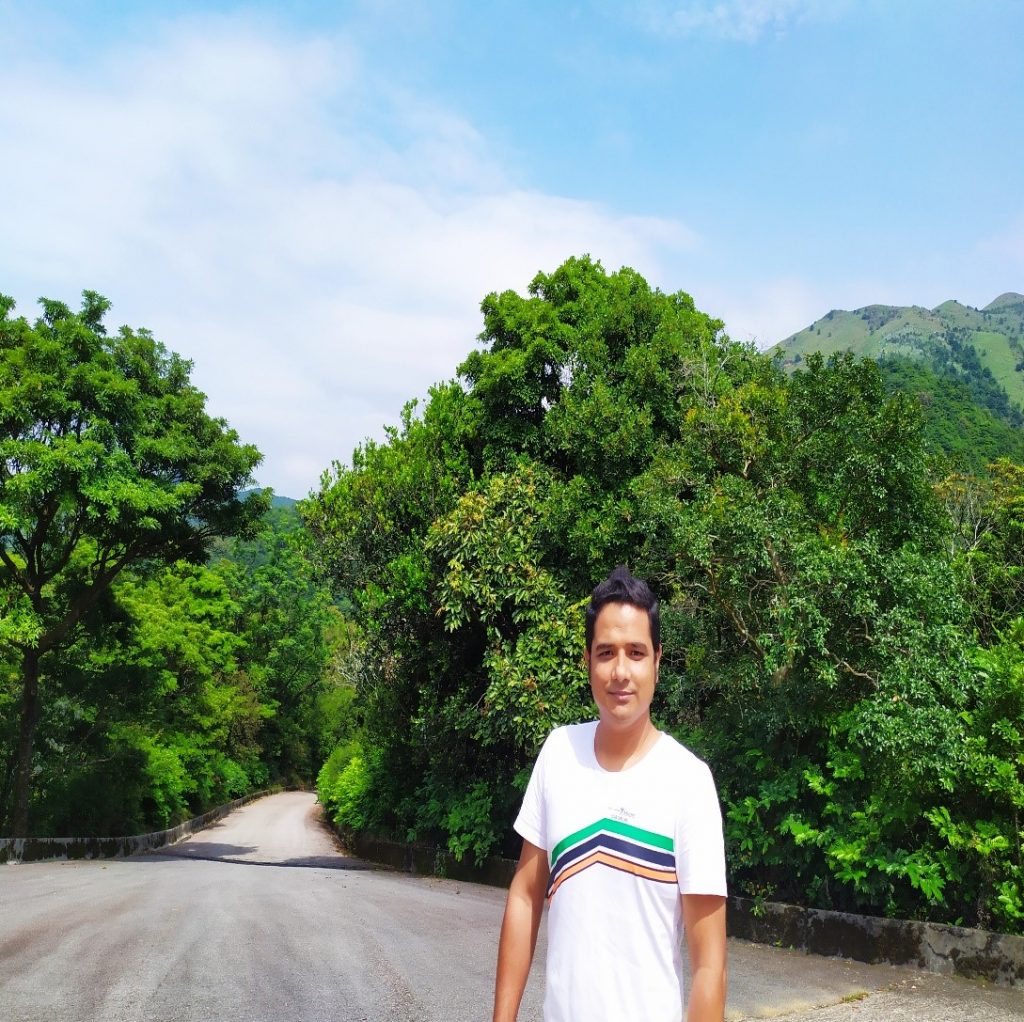
The Inaugural edition of the Canada-Hong Kong Public Affairs and Management International Summer School cum Policy Analysis Competition 2021 took place from August 16 to 23, 2021. It was co-organised by the Department of Asian and Policy Studies at The Education University of Hong Kong (EdUHK) and the Johnson Shoyama Graduate School of Public Policy, University of Saskatchewan (USask).
Given the pandemic and difficulties in air travel, the Programme took place virtually, with speakers and students logging in from territories across the globe – Canada, Mainland China, Hong Kong, India and Singapore. The unique format of the Programme was cited by students as one of its major draws. The first five days were devoted to faculty-led sessions in the mornings, which introduced students to various facets of public affairs and public management in different sectors around the world. These were complemented by tutorials and student cafés in the afternoon that focussed on policy analysis activities. The morning sessions featured academic faculty from EdUHK, USask, University of Regina, and Simon Fraser University as well as invited guests that were current and former public service practitioners. By adopting varied formats, including seminars, workshops, a movie screening and case studies; students gained insight and developed skills to understand real-world issues on a range of topics spanning – health, climate change, policy analysis, refugee issues, urban governance, eco-tourism, human resources management, data use; to name a few.
These sessions served as preparatory ground for the Policy Analysis Competition, which marked the culmination of the Programme. Teams were tasked with choosing a territory or country for which they had to define a pressing problem(s) with respect to COVID-19, diagnose its causes, evaluate the government response and make policy recommendations. Teams had the next 48-hours to organise themselves, choose their respective cases, undertake relevant research and prepare a presentation. The two teams winning the first prize and the first runner-up focussed, respectively, on Japan’s struggles in balancing economic recovery with curbing COVID-19 transmission and the issue of migrants in India during the pandemic-induced lockdown. The Programme received a very positive response. In their feedback, students appreciated it for the high level of professional organisation and for the introductory primer it provided on different policy topics. Other participants remarked upon the exceptional degree of international interaction and the excellent speakers. Most encouraging were the words of a student that noted the Programme ‘stimulated autonomy while guiding students to learn to incisively analyse public policy’.

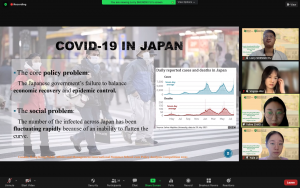
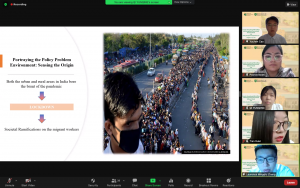
The Department of Asian and Policy Studies (APS) wishes to congratulate Miss Vivien Tang Foong Yee on winning the Belt and Road Scholarship for Research Postgraduate Studies 2021. This serves as a recognition of her academic excellence and contribution to the EdUHK and the wider community. Carrying a total amount of HK$168,400, this scholarship will fund Miss Tang’s PhD endeavor in social welfare policy in the APS Department from this year. Founded in 2016/17 by the Hong Kong SAR Government, the Belt and Road Scholarship aims to attract outstanding students from the Belt and Road regions to pursue higher education in Hong Kong.
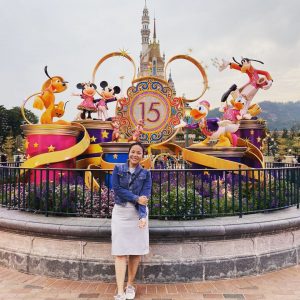
Born and raised in Singapore, Miss Tang owns an enviable CV. She graduated with a bachelor’s degree in Psychology from the University at Buffalo and obtained her first master’s degree at Canisius College, a renowned liberal arts college in the US. Later on, she returned to Singapore and began her career. Encouraged by her family, Vivien was determined to step out of her comfort zone and eventually decided to return to campus after seven years of social work services and professional research. She chose The Education University of Hong Kong to embark on a fascinating journey in the world of public policy here at the APS Department. This year, she received her second Master’s degree in Public Policy and Management from APS, and she is currently pursuing her PhD under the supervision of Dr Alex He Jingwei. She has also published a research article with Dr He in Health Policy, one of the premier international journals in the field. The article can be accessed on https://www.sciencedirect.com/science/article/pii/S0168851021000075.
On May 24 2021, the University Grants Council (UGC) announced the results of the 2020 Research Assessment Exercise (RAE), Hong Kong’s official scheme assessing the research performance and achievement of public universities. The assessment was undertaken by panels of distinguished experts from reputable overseas institutions as well as local universities, using international benchmarks. For the first time, the RAE2020 has included research impact as part of the assessment, with a view to encouraging research of broader social relevance with high economic and social benefits.
All eight public universities in Hong Kong participated in the disciplinary area of political science (including public administration, public policy, and international relations), or Unit of Assessment #25 (UoA 25), submitting their best research impact cases. In the entire Unit, only two research impact cases were unanimously rated ‘outstanding’ (four star)—the top score—by the international expert panel. Both impact cases feature public policy scholars based in The Education University of Hong Kong (EdUHK): Prof Chou Kee-lee and Dr He Jingwei Alex. This significant achievement again showcases the strength of EdUHK public policy scholars in making social impact with their cutting-edge policy research.
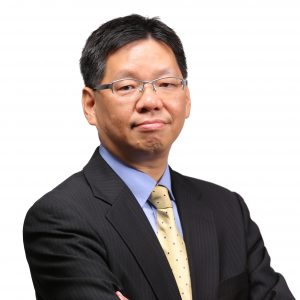
Prof Chou Kee-lee, Chair Professor of Social Policy of the Department of Asian and Policy Studies and Associate Vice President (Research) of EdUHK, is an internationally renowned scholar in social policy. For many years, he has been constantly ranked among the top 1% all over the world in the Social Science Citation Index (SSCI) based on number of citations. Prof Chou’s research has contributed significantly to social welfare reforms in Hong Kong and informed social policy making in the territory. Supported by many prestigious policy research grants, Prof Chou has conducted a series of important research projects related to income protection, poverty alleviation, and elderly care, generating wide impact on policy formulation, increasing public awareness, and promoting social justice. Many of the policy ideas he passionately advocated have been translated into reality, benefiting numerous disadvantaged individuals. His research well epitomizes the valuable passion and social responsibility of a seasoned policy scholar.
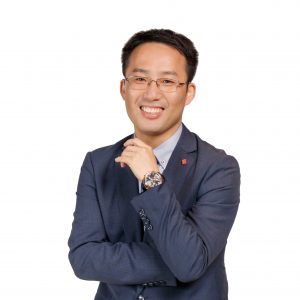
Dr He Jingwei Alex, Associate Professor and Associate Head (Research and Development) of the Department of Asian and Policy Studies, specializes in health policy and social welfare reforms, with a particular focus on Mainland China, Hong Kong, and the rest of East Asia. Dr He does not only disseminate his research insights through conventional academic publications, but also actively participate in policy advocacy. His research gained wide recognition in both Mainland China and Hong Kong. In a high-profile report jointly published by the World Bank, the World Health Organization, and the Chinese Government in 2016, titled “Healthy China: Deepening Health Reform in China, Building High-Quality and Value-Based Service Delivery“, six of Dr He’s research works were heavily cited, making him one of the very few international scholars recognized in such a high-level study. His research on health care financing reform in Hong Kong also offered useful insights to inform the Voluntary Health Insurance Scheme (VHIS) scheme.
On 17 May 2021, Hong Kong’s Chief Executive hosted a reception at the Hong Kong Science Park to honour awardees of the International Exhibition of Inventions of Geneva 2021 Special Edition, which according to the Swiss Consul of Hong Kong had attracted over 600 entries. Professor Woo Chi-Keung attended the reception as one of the two gold medal winners from the EdUHK for his Online Assessment System for Individual Scores (OASIS) that implements a transparent mechanism for scoring individual contributions to a team project’s completion. Using team members’ peer assessment data to compute performance-based scores, OASIS discourages free riding before project commencement and punishes free riders upon project completion. Adopted by 28 teachers across 9 universities in the U.S and Asia, OASIS has improved team-based learning of ~1,800 students enrolled in 23 diverse courses.










